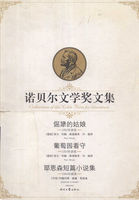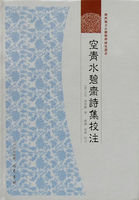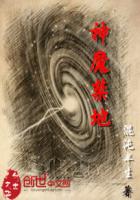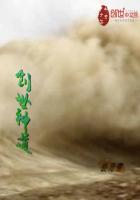Further, of the ways in which we prove that the Forms exist, none is convincing; for from some no inference necessarily follows, and from some arise Forms even of things of which we think there are no Forms. For according to the arguments from the existence of the sciences there will be Forms of all things of which there are sciences and according to the 'one over many' argument there will be Forms even of negations, and according to the argument that there is an object for thought even when the thing has perished, there will be Forms of perishable things; for we have an image of these. Further, of the more accurate arguments, some lead to Ideas of relations, of which we say there is no independent class, and others introduce the 'third man'.
And in general the arguments for the Forms destroy the things for whose existence we are more zealous than for the existence of the Ideas; for it follows that not the dyad but number is first, i.e. that the relative is prior to the absolute,-besides all the other points on which certain people by following out the opinions held about the Ideas have come into conflict with the principles of the theory.
Further, according to the assumption on which our belief in the Ideas rests, there will be Forms not only of substances but also of many other things (for the concept is single not only in the case of substances but also in the other cases, and there are sciences not only of substance but also of other things, and a thousand other such difficulties confront them). But according to the necessities of the case and the opinions held about the Forms, if Forms can be shared in there must be Ideas of substances only. For they are not shared in incidentally, but a thing must share in its Form as in something not predicated of a subject (by 'being shared in incidentally' I mean that e.g. if a thing shares in 'double itself', it shares also in 'eternal', but incidentally; for 'eternal' happens to be predicable of the 'double'). Therefore the Forms will be substance; but the same terms indicate substance in this and in the ideal world (or what will be the meaning of saying that there is something apart from the particulars-the one over many?). And if the Ideas and the particulars that share in them have the same form, there will be something common to these; for why should '2' be one and the same in the perishable 2's or in those which are many but eternal, and not the same in the '2' itself' as in the particular 2? But if they have not the same form, they must have only the name in common, and it is as if one were to call both Callias and a wooden image a 'man', without observing any community between them.
Above all one might discuss the question what on earth the Forms contribute to sensible things, either to those that are eternal or to those that come into being and cease to be. For they cause neither movement nor any change in them. But again they help in no wise either towards the knowledge of the other things (for they are not even the substance of these, else they would have been in them), or towards their being, if they are not in the particulars which share in them; though if they were, they might be thought to be causes, as white causes whiteness in a white object by entering into its composition. But this argument, which first Anaxagoras and later Eudoxus and certain others used, is very easily upset; for it is not difficult to collect many insuperable objections to such a view.
But, further, all other things cannot come from the Forms in any of the usual senses of 'from'. And to say that they are patterns and the other things share in them is to use empty words and poetical metaphors. For what is it that works, looking to the Ideas? And anything can either be, or become, like another without being copied from it, so that whether Socrates or not a man Socrates like might come to be; and evidently this might be so even if Socrates were eternal. And there will be several patterns of the same thing, and therefore several Forms; e.g. 'animal' and 'two-footed' and also 'man himself' will be Forms of man. Again, the Forms are patterns not only sensible things, but of Forms themselves also; i.e. the genus, as genus of various species, will be so; therefore the same thing will be pattern and copy.
Again, it would seem impossible that the substance and that of which it is the substance should exist apart; how, therefore, could the Ideas, being the substances of things, exist apart? In the Phaedo'
the case is stated in this way-that the Forms are causes both of being and of becoming; yet when the Forms exist, still the things that share in them do not come into being, unless there is something to originate movement; and many other things come into being (e.g. a house or a ring) of which we say there are no Forms. Clearly, therefore, even the other things can both be and come into being owing to such causes as produce the things just mentioned.
Again, if the Forms are numbers, how can they be causes? Is it because existing things are other numbers, e.g. one number is man, another is Socrates, another Callias? Why then are the one set of numbers causes of the other set? It will not make any difference even if the former are eternal and the latter are not. But if it is because things in this sensible world (e.g. harmony) are ratios of numbers, evidently the things between which they are ratios are some one class of things. If, then, this--the matter--is some definite thing, evidently the numbers themselves too will be ratios of something to something else. E.g. if Callias is a numerical ratio between fire and earth and water and air, his Idea also will be a number of certain other underlying things; and man himself, whether it is a number in a sense or not, will still be a numerical ratio of certain things and not a number proper, nor will it be a of number merely because it is a numerical ratio.















